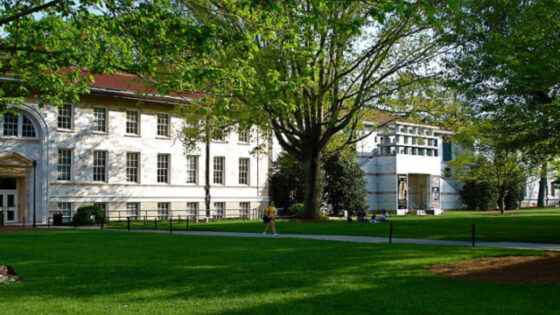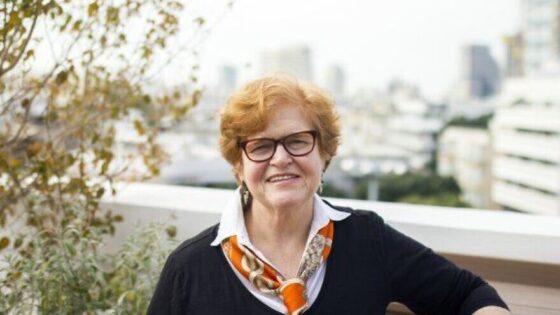A noted Emory University anthropologist is calling for the Carter Center to distance itself from its namesake in the wake of the former president’s latest book and recent comments about Israel.
Writing to Carter Center Executive Director John Hardman to decline a position on an advisory panel, Melvin Konner also offered a piece of advice.
“If you want The Carter Center to survive and thrive independently in the future, you must take prompt and decisive steps to separate the center from President Carter’s now irrevocably tarnished legacy,” wrote Konner, adding that the center has to make it clear that, on matters of the Middle East and the Jewish community, Carter does not speak for the institution.
“If you do not do this, then President Carter’s damage to his own effectiveness as a mediator, not to mention to his reputation and legacy, will extend, far more tragically in my view, to The Carter Center and all its activities,” wrote Konner, the Samuel Candler Dobbs Professor of Anthropology at Emory and the author of “Unsettled: An Anthropology of the Jews.”
Hardman said he has not received a copy of Konner’s letter, which was dated Dec. 17, and would not comment.
Carter spokeswoman Deanna Congileo said they have gotten thousands of letters from people either praising “Palestine: Peace Not Apartheid” or denouncing some aspects of it.
“The Carter Center has no official position on the book itself, which President Carter said during his book tour was a personal project and not that of The Carter Center,” Congileo said.
The Carter Center opened in 1982 as an organization “committed to advancing human rights and alleviating unnecessary human suffering,” and has done work – like monitoring elections and organizing programs to help fight disease – in more than 65 countries.
The center this week received $10 million from the Bill & Melinda Gates Foundation to fight river blindness, trachoma and other diseases in Nigeria.
The center has received praise for being the first truly modern presidential library, able to be active in public policy while staying connected with its political party.
Vanderbilt University history professor Thomas Alan Schwartz said that, as long as the former presidents are alive, or their families have influence, libraries likely will not take positions against their presidents.
“It is hard to do. Doubly hard with a living president. Presidential libraries are often sympathetic to their president,” said Schwartz, who wrote “The Vital Center: Presidential Libraries and the Memorialization of American Presidents.”
But for some, the good works of the Carter Center are now being overshadowed by Carter’s latest book, his take on the decades-long Israeli-Palestinian conflict.
The book is a blistering critique of Israel and places most of the blame for the Middle Eastern conflict on the Jewish state for creating apartheid-like conditions for the Palestinians. Although the book has gone through several printings and is on several best-sellers lists, it has been skewered by Jewish organizations and scholars as being anti-Semitic, inaccurate, misleading and absent of key facts. There also have been new charges that Carter promotes terrorism.
“It is imperative that the general Arab community and all significant Palestinian groups make it clear that they will end the suicide bombings and other acts of terrorism when international laws and the ultimate goals of the Roadmap for Peace are accepted by Israel,” Carter wrote in a passage near the end of the book.
Konner said that sentence condones “the murder of Jews until such time as Israel unilaterally follows President Carter’s prescription for peace.”
“This sentence, simply put, makes President Carter an apologist for terrorists and places my children, along with all Jews everywhere, in greater danger,” he said.
In the wake of all of the criticism, Konner – who is Jewish – said he was asked by Hardman to join an advisory panel that would begin advising Carter in January on issues. He initially thought he would join the panel, but changed his mind after watching Carter’s reaction to the controversy and his failure on several occasions to address any of the criticisms.
“This rigidity of thought and complete failure to engage criticisms from much greater experts than me about his numerous and serious errors of commission and omission make it clear to me that an attempt by me to advise him would be pointless and counterproductive,” Konner said.
Late Thursday, Congileo said she was not aware of the “advisory committee to which Mr. Konner refers.”
“President Carter’s wish and that of The Carter Center is that the debate about the book be a productive discussion among all stakeholders about how to bring peace and security to Israel and justice to the Palestinians,” Congileo said.




